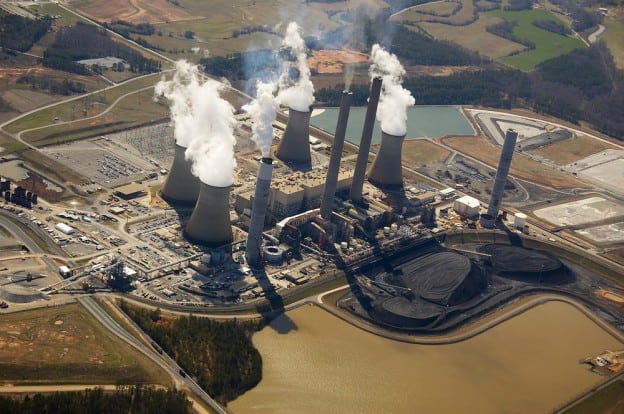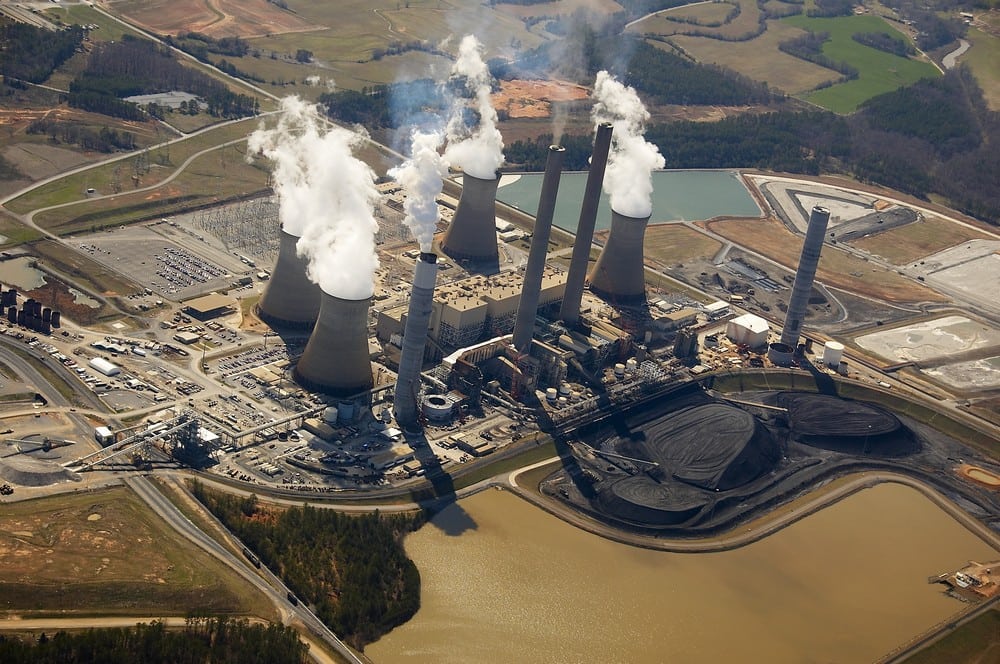Plant Bowen Will Showcase Largest Coal Ash Beneficial Use Project in the U.S.
Credit to Author: Sonal Patel| Date: Wed, 06 Jul 2022 15:47:20 +0000

Georgia Power will harvest 9 million tons of coal ash landfilled at its 3.4-GW Plant Bowen station in Bartow County, Georgia, and beneficially use it in concrete for major regional construction projects. The project, announced on June 29, will be the “ single largest beneficial use project of its kind in the U.S., and the largest ever for Georgia Power,” the Southern Co. subsidiary said.
The four-unit Plant Bowen, which began commercial operation in 1975, has historically transferred and stored its coal combustion residuals (CCR) at its ash pond (Ash Pond 1). In preparation for the 254-acre ash pond’s closure, the power plant completed the conversion to dry ash handling in early 2019. Today Ash Pond 1 no longer receives coal ash. Plant Bowen’s 10 disposal cells at its 148-acre CCR landfill, meanwhile, are slated to be closed by leaving the CCR in place and installing a final cover system to comply with Georgia’s Solid Waste Rule.
Under the newly announced coal ash beneficial use project, Georgia Power will partner with Utah-headquartered Eco Material Technologies, a marketer of fly ash and all coal combustion products, and a developer of new construction material technologies. Eco Material, which also provides coal-fueled power generating plants with complete on-site ash handling and management, environmental services, and engineering services, will manage the Plant Bowen project, including the end-use of the excavated coal ash.

Nine Million Tons of Coal Ash in Total Will Be Harvested
The companies plan to begin infrastructure installation to accommodate the work at Plant Bowen immediately. Ash removal from Plant Bowen’s ash pond and landfill is slated to begin by 2024, and the project will seek to increase its ash removal by 600,000 tons per year. “There is also the potential to expand operations to a second location and double annual production to over 1 million tons,” Eco Material said in a statement.
Fly ash “harvested” from Plant Bowen “will be used in concrete blends “to repair and construct bridges, roads, and buildings in Georgia as well as throughout the Southeast,” Eco Material said. Fly ash aids the formation of cementitious compounds to enhance the strength, impermeability, and durability of concrete, it noted. The company offers several grades of fly ash, including its proprietary Micron3, a refined pozzolan that is processed from selected fly ash and used in high-performance concrete.
“The material Eco Material is harvesting from Plant Bowen has been proven to enhance the strength, impermeability, and durability of concrete,” it added. Ultimately, that material could replace about 20% of carbon-intensive Portland cement in concrete mixes, the company said, noting that “Portland cement accounts for approximately 8 percent of global carbon emissions.”
A Potential Model for Beneficial Coal Ash Use
However, the Plant Bowen project could also “serve as a model for helping forward-thinking utilities like Georgia Power and Southern Company close landfills and ash ponds, while building a greener and more sustainable planet,” said Grant Quasha, CEO of Eco Material Technologies.
Georgia Power says it already recycles 85% of all ash and gypsum, including more than 90% of fly ash, that it produces from operations, but it has continued to seek out opportunities for the beneficial use of coal ash stored at its active and retired coal-fired power plants across the state. “Finding and securing these opportunities to beneficially use coal ash will not only reduce and save space in landfills, but will also serve as a financial tool to help offset the cost of ash pond closures for our customers,” said Aaron Mitchell, vice president of Environmental Affairs for Georgia Power.
While Georgia Power recovers CCR compliance costs from its rate base, the company has suggested coal-fired generation continues to be less economically viable than other power sources. In January 2022, Georgia Power proposed to retire and decertify 12 of its coal-fired units in Georgia—a total 3.5 GW—by 2028. That covers its entire Georgia coal-fired fleet, with the exception of Plant Bowen Units 3 and 4, which it has planned to keep open until 2035.
A June 13 stipulated agreement that Georgia Power reached with the Georgia Public Service Commission (PSC) staff, however, could push four of its coal units to close by August 2022, and another six shuttered by December 2028. While Georgia Power said its retirement study supports closing Plant Bowen Units 1 and 2 by 2028, PSC staff has said it is a “close call” for regional reliability. The stipulated agreement instead proposes that retirement of Plant Bowen Units 1 and 2 will be contingent upon “completion of the necessary transmission system improvements” identified in the company’s 2022 integrated resource plan. It also proposes that the PSC will determine when, between December 2027 and December 2035, the two units will be retired. The agreement also suggests that the PSC will continually discuss reliability impacts related to the future retirement of Plant Bowen Units 3 and 4.
Plant Bowen, notably, has long served as a center for pivotal energy research. The facility houses the Water Research Center, the first U.S. research facility dedicated “to finding new ways to reduce, conserve, and improve the quality” of power plant water. It also houses the Ash Beneficial Use Center, a facility Southern Co. opened in August 2021 in collaboration with the Electric Power Research Institute (EPRI).
The Ash Beneficial Use Center is focused on testing and validation of “emerging, pilot-scale technologies for repurposing coal combustion products (CCPs), which include coal ash,” EPRI has said. The center is designed to host pilot-scale demonstrations in one of two outdoor technology test bays. “Emerging technologies may allow CCPs to replace mined virgin materials in a wide range of products, such as tiles, zeolites, and plastics. Early-stage, independent evaluations of these technologies, including feedstock specifications and operational experience, are key to understanding technical feasibility and cost,” it added.
Tom Adams, executive director of the American Coal Ash Association, lauded the Plant Bowen project as a potentially lucrative opportunity for coal ash recycling, particularly given current construction material supply chain constraints. “As concrete manufacturers continue to work to achieve carbon neutrality in production, and power companies seek modern and innovative solutions for beneficial use of coal ash, this voluntary project in Georgia is a model for the industry, directly responding to both market and environmental needs,” he said. “With the nationwide focus on improving American infrastructure including roads and bridges, demand for materials continues to outpace available supply, and collaborative projects such as this will be critical to bridging that gap in the future.”
—Sonal Patel is a POWER senior associate editor (@sonalcpatel, @POWERmagazine).
The post Plant Bowen Will Showcase Largest Coal Ash Beneficial Use Project in the U.S. appeared first on POWER Magazine.